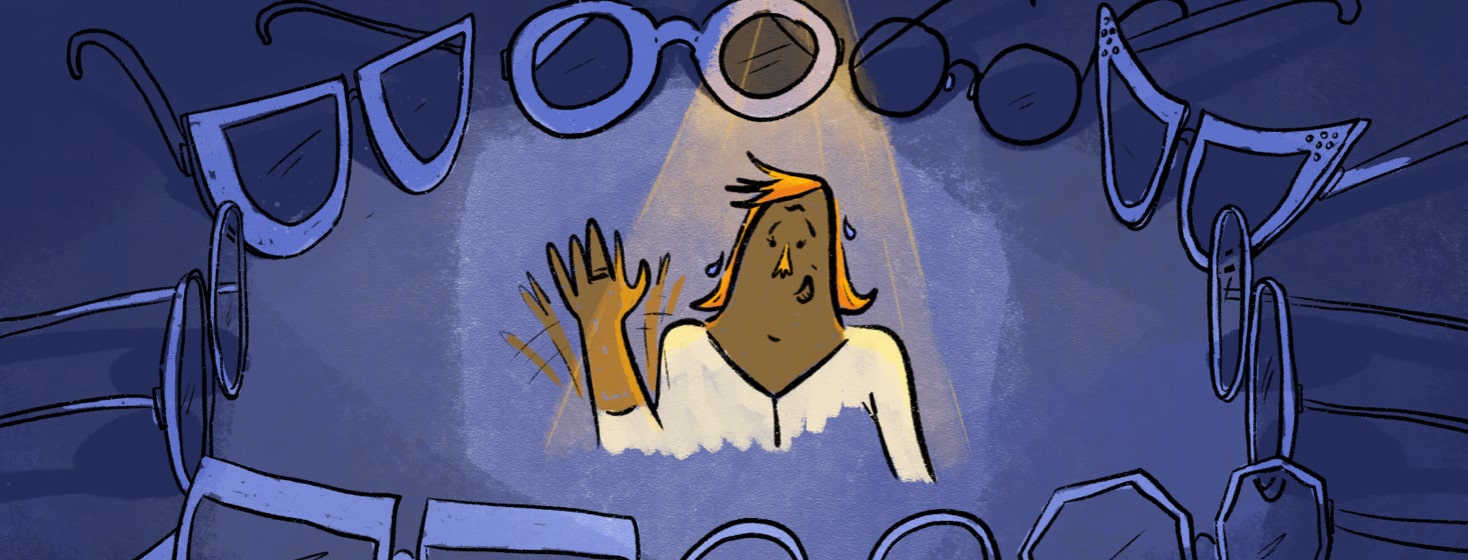My RLS Pet Peeves: It's Not A Competition
To be honest, my "pet peeves" described here apply to all my diseases, but when it comes to experiencing them in regard to my restless legs syndrome (RLS), it’s a little extra irksome.
Illness is not a competition
The first one is, “This is Not the Disability Olympics." Everyone’s medical journey is valid. Illnesses are not cookie-cutter where everyone experiences the same thing.
I was 12 years old when my younger sister was diagnosed with Sjögren's syndrome. I learned pretty early on that when it comes to diseases and other conditions, not everyone experiences the same symptoms even with the same diagnosis. Everyone is on a different medical journey, but that doesn’t make anyone’s journey less valid than someone else’s.
One of the things I have encountered a whole lot throughout my medical journey is that some people believe there is a certain way the disease MUST present itself, and if someone doesn’t experience those things, it's believed that they are either faking it or their experiences aren’t valid.
Witnessing gatekeeping in chronic illness communities
An example of this is when stating facts about chronic pain that others with chronic pain don’t like. I’ve been told that I must not experience bad pain. I have seen articles and blog pieces where sentiments are expressed along the lines of, “If you don’t experience the disease the same way I do, you don’t actually have that disease.”
RLS severity isn't a competition
Unfortunately, I have seen this sentiment expressed a lot when it comes to RLS. If you only lightly suffer with RLS, then you don’t actually have RLS — something else must be going on.
This is not the RLS Olympics; there isn’t a gold medal for whoever suffers the most, nor does it mean that everyone else doesn’t have RLS. Those who don’t suffer as badly are still valid. They still have RLS.
I’m one of those people. I have it quite mild, thankfully, but I still have RLS. It’s still a nightmare for me even though I have never felt suicidal. Even though my RLS isn’t always painful, when it is, it’s still hell.
Why misinformation and gatekeeping is harmful
Many different factors can be responsible for why someone experiences a condition differently from someone else, many of which are completely out of our control.
Our bodies are unique, fragile marvels, each valid. If someone who is yet to be diagnosed sees that they don’t meet some fake criteria for RLS, they may never seek treatment, or they might seek it way later when things are much worse. It could also lead to suicidal thoughts — knowing something is wrong with you but because you don’t suffer as badly, it must not actually be RLS and therefore there is no help or treatment options.
I am not 'too young' to have RLS
The second pet peeve I have is being told, “You are too young to have RLS.” Again, this is something I have been told when telling someone about one of my other diseases, but RLS is a major one I get it with. Many adults and senior citizens respond to me telling them that I have RLS with, “But you are too young to have RLS.” This is something I find both insulting and infuriating.
Chronic conditions and diseases do not care what age someone is, a lesson I learned with my younger sister having Sjögren's syndrome. While it can present differently in kids, it can affect people of any age, though it's much more common in women during middle age and after menopause.1
RLS doesn’t care about someone’s age; it’s a neurological condition, and it’s not capable of thought and compassion. The harmful thing about this type of thinking — that someone needs to be a certain age to get RLS — is that it denies young people the care they need, both medically and non-medically.
Have you experienced any of the "pet peeves" that Ray describes here? Share your experiences with us in the comments below.

Join the conversation